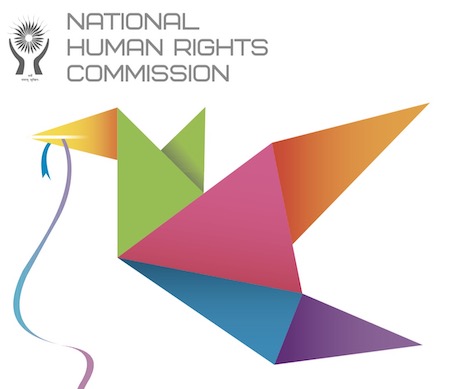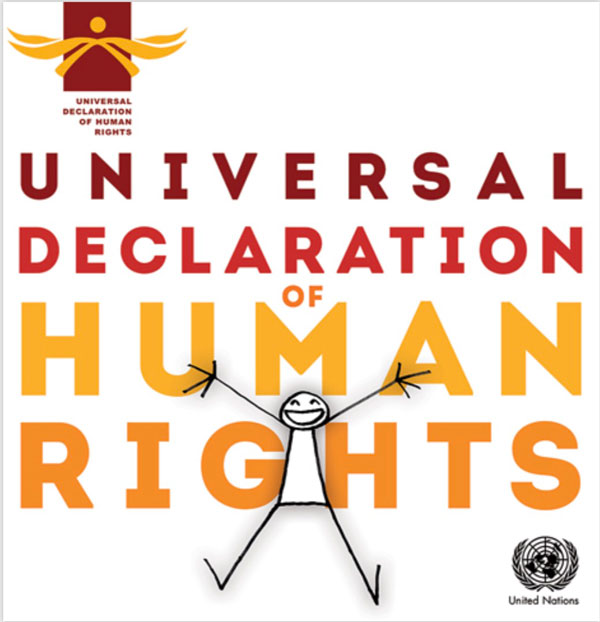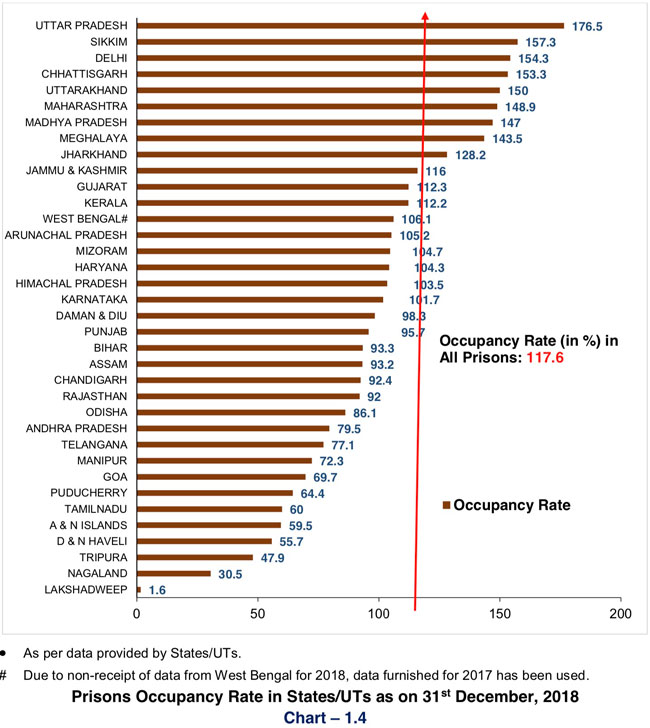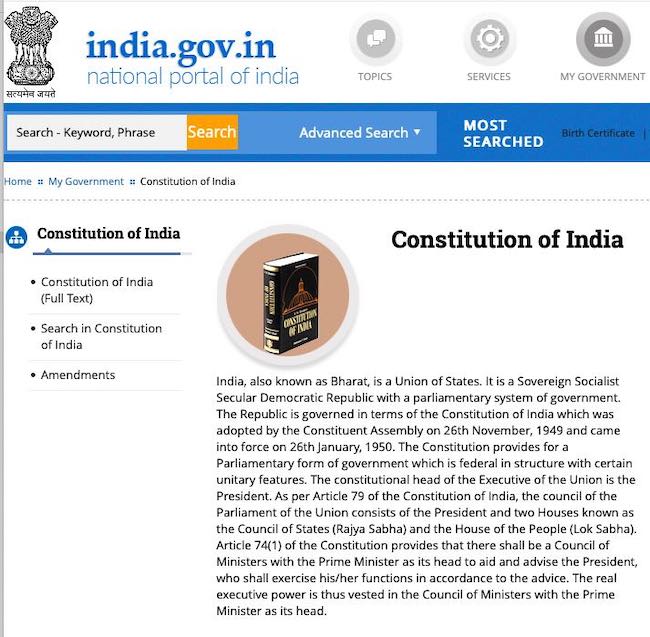Truth (Satya) implies Love, and Firmness (Agraha) engenders and therefore serves as a synonym for force … that is to say, the Force which is born of Truth and Love or Non-violence.
Mahatma Gandhi on Civil Disobedience and Satyagraha in The Essential Gandhi: His Life, Work, and Ideas >>

Annual Report – 2014-2015 >>
Backup copy (PDF, 5,1 MB) >>
Learn more
Accountability | Childhood >>
Childrens rights | Women >>
- India must ratify the International Convention against Torture
- The National Human Right Commission regards crimes like rape, molestation, torture, fake encounter in police custody as manifestations of a systemic failure to protect human rights

“Many people – though not all – have been able to secure freedom from torture, unjustified imprisonment, summary execution, enforced disappearance, persecution and unjust discrimination, as well as fair access to education, economic opportunities, and adequate resources and health-care. They have obtained justice for wrongs, and national and international protection for their rights, through the strong architecture of the international human rights legal system.” – Introduction to the Universal Declaration of Human Rights, p.vi
See also: The Universal Declaration of Human Rights turns 70 | Human Rights Commission (posts) | National Human Rights Commission: www.nhrc.nic.in (Government of India) >>
“Where, after all, do universal human rights begin? In small places, close to home — so close and so small that they cannot be seen on any maps of the world. […] Unless these rights have meaning there, they have little meaning anywhere. Without concerted citizen action to uphold them close to home, we shall look in vain for progress in the larger world.” – Eleanor Roosevelt
The Universal Declaration of Human Rights turns 70
Let’s stand up for equality, justice and human dignity
Human Rights Day is observed every year on 10 December – the day the United Nations General Assembly adopted, in 1948, the Universal Declaration of Human Rights. This year, Human Rights Day kicks off a year-long campaign to mark the upcoming 70th anniversary of the Universal Declaration of Human Rights, a milestone document that proclaimed the inalienable rights which everyone is inherently entitled to as a human being — regardless of race, colour, religion, sex, language, political or other opinion, national or social origin, property, birth or other status. It is the most translated document in the world, available in more than 500 languages.Drafted by representatives of diverse legal and cultural backgrounds from all regions of the world, the Declaration sets out universal values and a common standard of achievement for all peoples and all nations. It establishes the equal dignity and worth of every person. Thanks to the Declaration, and States’ commitments to its principles, the dignity of millions has been uplifted and the foundation for a more just world has been laid. While its promise is yet to be fully realized, the very fact that it has stood the test of time is testament to the enduring universality of its perennial values of equality, justice and human dignity.
The Universal Declaration of Human Rights empowers us all. The principles enshrined in the Declaration are as relevant today as they were in 1948. We need to stand up for our own rights and those of others. We can take action in our own daily lives, to uphold the rights that protect us all and thereby promote the kinship of all human beings.
#StandUp4HumanRights
- The Universal Declaration of Human Rights empowers us all.
- Human rights are relevant to all of us, every day.
- Our shared humanity is rooted in these universal values.
- Equality, justice and freedom prevent violence and sustain peace.
- Whenever and wherever humanity’s values are abandoned, we all are at greater risk.
- We need to stand up for our rights and those of others.
Source: https://www.un.org/en/observances/human-rights-day
Date accessed: 12 October 2018
Highlights : 2014-2015
2.1. Human rights are universal legal guarantees protecting individuals and groups against actions and omissions that interfere with fundamental freedoms, entitlements and human dignity. Human rights are inherent in all human beings and are founded on respect for the dignity and worth of each person. They stem from cherished human values that are common to all cultures and civilizations. Human rights have been enshrined in the Universal Declaration of Human Rights and codified in a series of international human rights treaties ratified by States and other instruments adopted after the Second World War. […]2.2 Human rights are universal, inalienable, interrelated, interdependent and indivisible. Taken together, these characteristics, ensure that all human rights are to be realized, whether they are civil and political rights, economic, social and cultural rights or collective rights, for all people and at all times. The level of enjoyment of one right is dependent on the realization of other rights. For instance, the right to vote and participate in public affairs may be of little importance to someone who has nothing to eat. Furthermore, their meaningful enjoyment is dependent, for instance, on the realization of the right to education. Similarly, improvement in the enjoyment of any human right cannot be at the expense of the enjoyment of any other right. Thus, the realization of civil rights is as important as the realization of economic rights.
2.3 The significance of human rights, more so their realization, remind us of the necessity to place the human being at the centre of our overall development and adjust our analytical lens accordingly. In its last Annual Report pertaining to the year 2013 – 2014, the Commission had stated that all human rights for all people in all countries should be the goal of the 21st century whereby everybody lives a life of dignity and enjoys freedom from fear and want, without discrimination. In accord with the same, the Commission continued to focus its attention onproper and just implementation of civil, political, economic, social and cultural rightsin the country during the period under review and in the process made efforts to empower people, especially the most vulnerable and the most marginalized. […]
The Workshop took stock of the implementation of its recommendations made earlier during the course of a ‘National Seminar on Human Rights Defenders’ held in 2009 with the objective of strengthening the mechanism of protecting human rights defenders and valuing their work towards good governance.
14.10 The National Workshop made substantial recommendations [including a demand that] India must ratify the International Convention against Torture and bring in a domestic legislation against Torture on priority in accordance with the International Convention. [The National Human Right] Commission remained engaged, suo-motu or on the basis of complaints, with instances of custodial death and rape, death in police custody, illegal detention and torture, police high-handedness, death in police and para-military firing and encounter, atrocities against vulnerable sections of society – women, children, disabled and the elderly – often compounded when they belong to the Scheduled Castes and Scheduled Tribes. […]
Number and Nature of Complaints
19.3 As in the past, the Commission continued to receive complaints from different parts of the country on a wide range of issues where rights of the people had been violated or negligence was shown by a public servant in the prevention of such violations. These complaints included cases alleging custodial deaths, torture, fake encounters, police high-handedness, violations committed by security forces, conditions relating to prisons, atrocities committed on women and children and other vulnerable sections, communal violence, bonded and child labour, non-payment of retrial benefits, negligence by public authorities, etc. The Commission furthermore took cognizance of the intimations received regarding deaths in police encounters and police custody, judicial custody and in the custody of defence/para military forces. […]A total of 1,14,167 cases were registered in the Commission (Annexure-1) during 2014-2015. […]
Custodial Violence and Torture
19.11 Custodial violence of different kinds including torture represents the worst form of excesses by public servants entrusted with the duty of law enforcement. The Commission regards crimes like rape, molestation, torture, fake encounter in police custody as manifestations of a systemic failure to protect human rights. Therefore, it is deeply committed to ensure that such illegal practices are stopped and human dignity is respected in all cases. […]
Source: National Human Right Commission (www.nhrc.nic.in), “Annual Report – 2014-2015” (21 June 2016), pp. 7-8, 229 & 257-260
URL: https://www.mha.gov.in/sites/default/files/NHRC_AR_EN_2014-2015_27022019.pdf
Date visited: 13 April 2021
A quick glance at the Maoist terrorism infested regions shows that barring three districts of Kerala, 87 of 90 afflicted districts are in a clearly demarcated contiguous stretch which is known by the epithet ‘Red Corridor’ from Pasupati to Tirupati. Incidentally, the Red Corridor is a major part of the ‘Ramayana Corridor’ as many events described in Ramayana happened here with clearly identifiable place names and geographical descriptions. […]
In fact, Hindus consider nature itself divine. Therefore, it is no wonder that forests and hills have been the abodes of our rishis, munis, sadhakas etc. Gurukulas, the ancient centres of knowledge and education, were within or close to forests where much of our sacred knowledge and literature was produced. […]
The STs [Scheduled Tribes] in Scheduled Areas do not get quality education, healthcare and other services [and remain] excluded, isolated and captived to become moths to the flames of the deep state. […]
Any development presupposes mainstreaming. An isolated individual, community, society or nation can never develop. Therefore, removing the constitutional and legal barriers is a prerequisite to mainstream and usher in the all-round development of STs in Scheduled Areas. […]
Source: Indian Police Service (IPS) officer M Nageswara Rao in “Scheduled Tribes: Who are they? How to mainstream them?” (Times of India, 16 May 2020)
URL: https://timesofindia.indiatimes.com/blogs/voices/scheduled-tribes-who-are-they-how-to-mainstream-them/
Date visited: 26 May 2021
Our authorities have shown us their claws… is not ashamed to use its machines of destruction to terrorise a population completely disarmed.
Source: Rabindranath Tagore in a letter to Mahatma Gandhi responding to the Jalianwala Bagh massacre in Amritsar (13 April 1919); quoted by Arnab Ganguly in “Bengal Assembly polls 2021” (The Telegraph online, 12 April 2021)
URL: https://www.telegraphindia.com/west-bengal/bengal-assembly-polls-2021-mamata-modi-make-firing-deaths-the-cornerstone-of-campaign/cid/1812345
Background information: https://en.wikipedia.org/wiki/Jallianwala_Bagh_massacre
Date visited: 12 April 2021
[F]our human rights experts have expressed concern about allegations that the Uttar Pradesh Police had committed at least 59 extrajudicial killings since March 2017 […] The experts have sent detailed information to the Indian government about 15 such cases, but are reportedly yet to receive a response. […]
[The United Nations Office of the High Commissioner for Human Rights] said that these experts have sent detailed information to the Indian government about 15 such cases, most of which concern poor Muslims. […]
“We are extremely concerned about the pattern of events: individuals allegedly being abducted or arrested before their killing, and their bodies bearing injuries indicative of torture.”
Source: Scroll Staff on Fake Encounter Cases in “Uttar Pradesh encounters: UN human rights experts concerned about killings” (Scroll.in, 12 January 2019)
URL: https://scroll.in/latest/909219/uttar-pradesh-encounters-un-human-rights-experts-concerned-about-killings-call-for-investigation
Date visited: 12 April 2021

Download the full report titled “Prison Statistics India 2018” (36 MB) | Adverse inclusion >>
India, a union of states, is a Sovereign, Secular, Democratic Republic with a Parliamentary system of Government | Learn more >>

As a democracy, India has languished. Human rights advocates and political activists, even those whose adherence to nonviolence has been exemplary, have been hauled into jail on fraudulent charges. Various stratagems, including colonial-era pieces of legislation, have been deployed with intensity to harass, silence, and liquidate journalists and intellectuals who speak in the language of dissent. […] On the Democracy Index’s global ranking, India dropped 10 places to 51: that it maintains even something of a place as a ‘flawed democracy’ has to do with the relatively smooth functioning of the election machinery, though the data shows the severe erosion of ‘civil liberties’.
Source: “Emergency in India, Faux and Real” by Vinay Lal, Professor of History & Asian American Studies, University of California, Los Angeles UCLA), (26 June 2020)
URL: https://vinaylal.wordpress.com/2020/06/26/emergency-in-india-faux-and-real/
Date visited: 7 May 2021
“Tribals are subject to oppression and cruelty even after independence and still picked up by the investigating officers to cover up shoddy investigations.” – D.Y. Chandrachud (Chief Justice of India since 9 November 2022) quoted in “Members of De-Notified Tribes Picked Up to Cover Up Shoddy Investigations” | Learn more >>
When law enforcement agencies become perpetrators of violence, it becomes an ominous case of abuse of authority
Custodial deaths in India are a cold-blooded play of power and class, which cannot be viewed in isolation. When law enforcement agencies become perpetrators of violence, it becomes an ominous case of abuse of authority, which is antithetical to the rule of law-based system of democratic governance where human rights rule supreme. Custodial deaths are excesses by police force on citizens.
Types of torture include […]. Heads of all national commissions, such as, National Commission for Scheduled Castes, National Commission for Scheduled Tribes, National Commission for Minorities and National Commission for Women are represented on the board of NHRC to strengthen and ensure standards of human rights of all strata of people.
Despite that there is no improvement in human rights of citizens, pointing out public institutions, though existing on paper with all lofty ideals as defenders of human rights of the people, are ineffective or defunct for all practical purposes.
UN Convention Against Tortures seeks to prevent all types of tortures and other acts of cruel, inhuman, or degrading treatment or punishment around the world. Currently, the Convention is under review to make it more effective. Except seven countries that include India, all UN member nations have ratified the UN Convention Against Tortures.
At present, India has 1,350 prisons with a rated full capacity of 4,03,739 prisoners. All jails are bursting with overcrowding and degrading inhuman conditions, so much for standards of human rights of prisoners in terms of the Constitution of India.
The Constitution envisioned prisons as centres of reforms, which is not happening.
Source: “Time to tame torturers” by MY Siddiqui (tehelka.com, 29 October 2020)
URL: http://tehelka.com/time-to-tame-torturers/
Date visited: 7 January 2020
[Bold typeface added above for emphasis]
“National development and the development of tribal communities are linked to each other.” – Droupadi Murmu
Speeches by the President of India >>